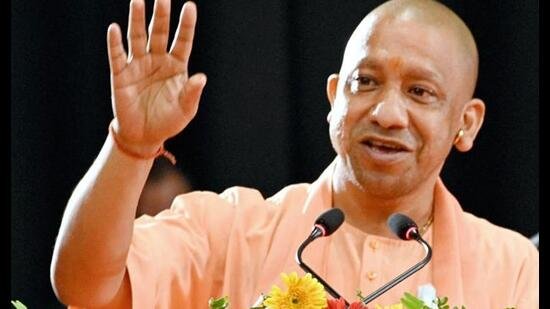
Uttar Pradesh Chief Minister Yogi Adityanath has recently made a strong appeal to authorities across the state to stay vigilant and closely monitor institutes that provide care, education, and housing for differently-abled individuals. This statement was made in response to reports of neglect and mismanagement in some of these facilities, which are supposed to be safe and nurturing spaces for people with disabilities.
The Chief Minister’s move highlights the government’s growing commitment to inclusive development, social welfare, and human dignity. With over 2.68 crore differently-abled people in India (as per the 2011 Census), ensuring proper care and rights for them is not just a legal obligation but a moral responsibility. The step taken by CM Yogi aligns with the broader national goals of creating an Accessible India where everyone, regardless of physical or mental condition, can live with dignity and equal opportunity.
Institutes for differently-abled individuals exist throughout Uttar Pradesh and are run by both government and private organizations. These centers offer services such as education, vocational training, rehabilitation, and residential care. However, some recent media stories and complaints have exposed troubling issues in several of these facilities. Allegations have included poor hygiene, lack of trained staff, insufficient medical care, and in some cases, even physical or emotional abuse. These serious concerns have pushed the Chief Minister to demand immediate reform and accountability.
In a high-level meeting with the Social Welfare Department, Health Department, and district-level officials, Yogi Adityanath laid out specific instructions. He called for surprise inspections of all institutes to assess their actual condition and functioning. According to him, only through random checks can the true state of these centers be known. He also emphasized the need for strict punishment in cases of misconduct or negligence by staff members.
Yogi Adityanath highlighted that these centers should not just fulfill basic requirements but must actively work toward building a caring and supportive environment. He instructed officials to ensure that all staff receive proper training in dealing with disabled individuals, including courses on mental health, first aid, and sensitivity training. Furthermore, he stressed the importance of having proper medical services, including regular health check-ups for residents. He also suggested adding counseling services for emotional and psychological well-being.
Another major area of focus is infrastructure. CM Yogi directed the administration to ensure that these institutes have facilities such as wheelchair ramps, grab rails, clean and accessible toilets, and assistive technology. These upgrades will help make the institutes truly inclusive and accessible for individuals with varying types of disabilities.
Reports from government audits and NGOs working on disability rights have pointed out additional challenges in these institutions. Many centers, especially in rural areas, suffer from a shortage of trained staff, including caregivers and therapists. There are also delays in fund allocation and a lack of focus on people with invisible disabilities such as autism, ADHD, or learning disorders. CM Yogi’s announcement aims to tackle all these problems and more.
The announcement has been welcomed by many. Ritu Sharma, the mother of a 14-year-old boy with cerebral palsy, expressed relief. She said, “We need leaders who understand the needs of our children. I’m glad CM Yogi is paying attention to this issue.” Similarly, Dr. Arvind Kumar, a Lucknow-based psychologist, appreciated the move, saying, “Emotional and mental support is as important as physical care. Proper training and sensitivity among staff can change lives.”
NGOs working in this field have also voiced their support. However, they have requested that instead of just punishing poorly managed institutes, the government should help them with guidance, funding, and training programs. Many of these smaller centers lack the expertise or resources to meet all the regulations but are still doing meaningful work in underserved areas.
The Uttar Pradesh government under CM Yogi has already launched several welfare programs aimed at differently-abled citizens. These include the Divyangjan Pension Scheme, distribution of free assistive devices like wheelchairs and hearing aids, and the promotion of skill development initiatives. The state has also been pushing for greater job and education reservation for differently-abled people and supports the Accessible India Campaign at the local level.
Experts believe that while the Chief Minister’s current focus is much needed, long-term reforms are equally important. These could include digital monitoring tools, third-party audits, and public feedback mechanisms. Experts have also stressed the importance of updating teacher training programs to include modules on inclusive education and special needs. They also suggest that invisible disabilities be given as much attention as visible ones to create truly inclusive care models.
This initiative also aligns with India’s global commitments. As a signatory to the United Nations Convention on the Rights of Persons with Disabilities (UNCRPD), India is obligated to ensure that persons with disabilities enjoy full and equal rights in education, employment, and community life. CM Yogi’s directive, if implemented effectively, can serve as a model for other states to follow.
Yogi Adityanath’s call for increased vigilance in institutes catering to differently-abled people is a step in the right direction. It shows that the state government is committed to protecting its most vulnerable citizens and ensuring they receive proper care and respect. With improved monitoring, better infrastructure, and trained staff, these institutes can evolve into centers of empowerment rather than just care facilities.
However, real success will come only when the public, government, and civil society work together to create a society where every individual, regardless of ability, is treated with equality, dignity, and compassion.































